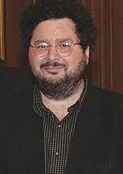Streaming is replacing the web as we know it

Yale computer scientist David Gelernter says the Web as we know it is coming to an end. What's arriving in it's place is a whole new dimension of computing.

In a new post at Wired, Gelernter calls the new paradigm emerging as a time-based "worldstream." It’s "already happening," he adds, starting with the "lifestream" that he and Eric Freeman predicted in a 1997 article.
If Gelernter is right, I think we may be entering a whole new era of streampunk.
Or, as Gelernter puts it: "People ask what the next web will be like, but there won’t be a next web." The lifestream of computing began in the eaarly 2000s with blogs and RSS feeds, a move away from the "flatland" of desktop computing. Now, we are moving full-force into a computing paradigm in which information of our choice is continuously streamed to us.
Soon, he says, "the web will be history." Along with killing the operating system, browser and search, the meaning of “computer” is changing as well:
"Whether large or small (e.g., a smartphone), a computer’s main function in the near future will be tuning in to — as a car radio tunes in a broadcast station — the constantly flowing global cyberflow. We won’t care much about the computer devices themselves since we’ll be more focused on the world of information … and our lives as attached to it."
Gelernter says we aren't quite there yet, and what is needed to enable this is a "stream browser" that are like today’s browsers, "but designed to add, subtract, and navigate streams.... Stream-browsers will help us tune in to the information we want by implementing a type of custom-coffee blender: We’re offered thousands of different stream 'flavors,' we choose the flavors we want, and the blender mixes our streams to order."
As a result, he adds, "every site’s content is liberated from the confines of space. It becomes part of a universal timestream." and e-commerce won't require customers to work at finding new products, visiting 100 different sites to find a product at the right price. "People no longer want to be connected to computers or ‘sites’ -- they probably never did," he adds.
(Photo: National Endowment for the Arts.)
(Thumbnail photo: Joe McKendrick.)